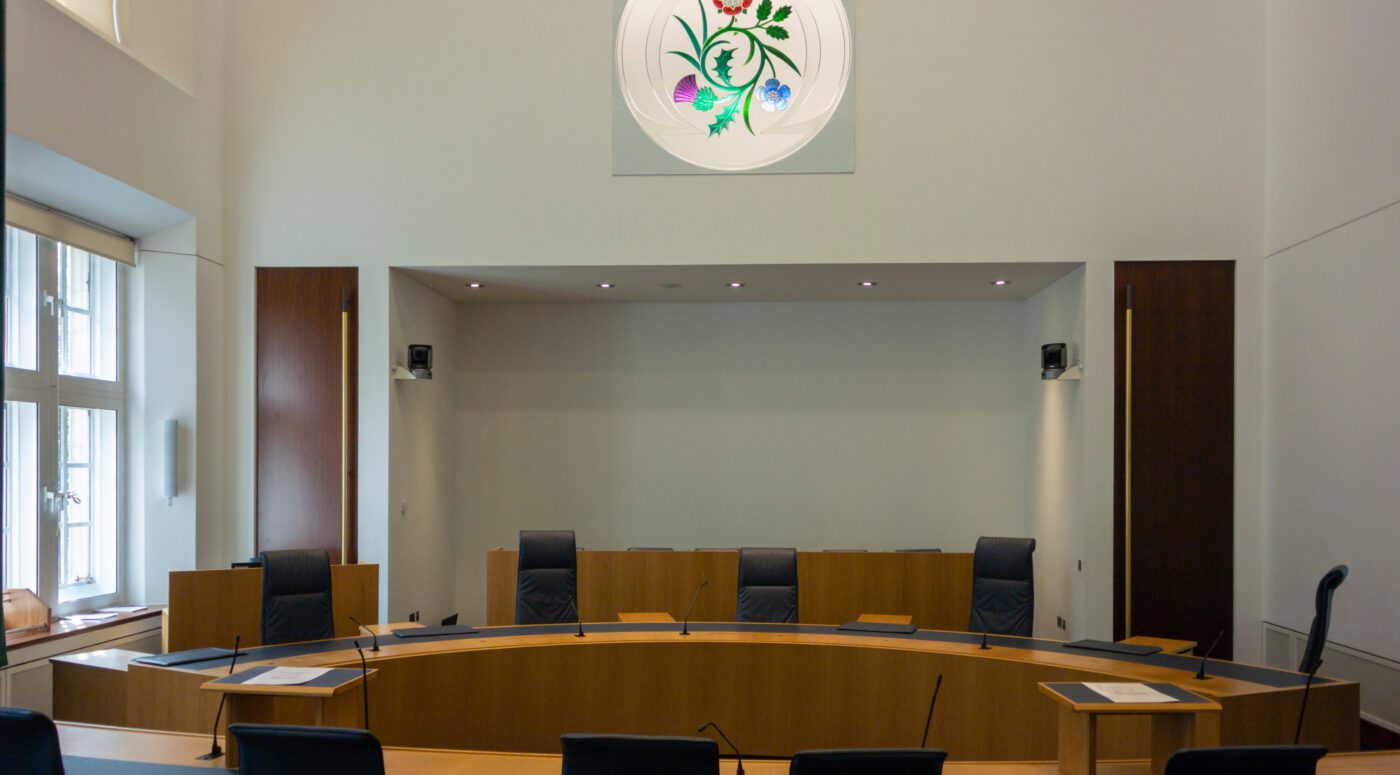

If you or someone you care about is facing charges for tipping off, you must approach the situation with a clear understanding of the offence and a proactive mindset about how to compile a defence. Tipping off is a serious offence in England and Wales that can carry significant legal consequences, very often impacting one’s personal and professional life. The first step is to remain calm and avoid discussing the case with anyone other than a qualified legal professional. This article aims to demystify tipping off charges, outlining what constitutes the offence, exploring the maximum penalties you might encounter, and highlighting strategies a solicitor can use to safeguard your interests. Information on where to get more help is also included.
What is the offence of tipping off?
Tipping off is a serious offence in England, governed primarily by the Proceeds of Crime Act 2002. It involves disclosing information to someone who is the subject of a money laundering investigation, usually to help them avoid investigation or have extra time to ‘prepare’ for it, thereby potentially prejudicing the investigation. The seriousness of this offence stems from its potential to undermine the efforts of police and other law and governmental enforcement agencies in tackling financial crimes.
To secure a conviction for tipping off, the prosecution must prove:
- Disclosure: There must be a disclosure of information to another person. This means that the defendant must have communicated specific details about the investigation to someone else. The form of this disclosure can vary widely, from verbal communication to written messages or electronic correspondence.
- Knowledge or Suspicion: The person making the disclosure must know or suspect that a money laundering investigation is underway or impending. This element requires the prosecution to demonstrate that the defendant was aware of the investigation or had reasonable grounds to suspect that one was taking place. It is not enough for the defendant to have made a general comment; they must have had specific knowledge or suspicion related to the investigation.
- Prejudice: The disclosure must be likely to prejudice the investigation. This means that the information shared must have the potential to hinder the investigation in some way. For example, if the disclosure allows the subject of the investigation to alter their behaviour, destroy evidence, or take other actions to avoid detection, it would be considered prejudicial. The prosecution must show a clear link between the disclosure and the potential harm to the investigation.
Examples of tipping off include:
- Informing a business associate that their transactions are under scrutiny by financial authorities.
- Telling a friend that their bank accounts are being monitored for suspicious activity.
- Alerting a family member that their financial dealings are being investigated by the relevant authorities.
- Disclosing to a colleague that their company is under investigation for money laundering.
- Informing a client that their financial records have been requested by authorities.
- Warning a partner that their recent large cash deposits have triggered a report to the authorities.
- Telling a customer that their account activity has raised red flags with compliance officers.
- Notifying a supplier that their transactions are being examined for potential money laundering.
- Alerting a tenant that their rental payments are under investigation for being unusually high.
- Informing a contractor that their invoices are being scrutinised for possible fraudulent activity.
What is the maximum sentence for tipping off?
The maximum sentence for tipping off in England and Wales, as guided by the Sentencing Council, can be quite severe. Tipping off is classified as a serious offence due to its potential to obstruct justice and facilitate further criminal activity. Under the Proceeds of Crime Act 2002, the maximum penalty for an individual convicted of tipping off is 5 years’ imprisonment. Additionally, those found guilty may also face substantial financial penalties.
The severity of the sentence can vary depending on factors such as the nature of the disclosure, the extent of the prejudice caused to the investigation, the defendant’s role in the offence, and any mitigating circumstances. Seek expert legal advice from a criminal defence solicitor if you are facing such charges, as they can provide tailored guidance and representation on your exact case and advise on what any maximum sentences may be, if indeed you are ultimately convicted.
What factors influence the sentencing of tipping off?
When sentencing for tipping off, a judge will consider several key factors to determine an appropriate and just penalty. These factors are derived from broad guidelines provided by the Sentencing Council and aim to ensure consistency and fairness in sentencing. Here are the main considerations:
- Culpability: The level of involvement of the defendant in the offence is crucial. Higher culpability is attributed to those who played a leading role or had significant knowledge of the investigation. Conversely, individuals who had a limited role or were coerced into participating might be deemed less culpable.
- Harm: This considers the extent to which the disclosure prejudiced the investigation. Greater harm will typically result in more severe sentences.
Judges also take into account aggravating and mitigating factors, which can significantly impact the sentencing outcome.
Aggravating factors may include:
- Being part of a larger, organised effort to obstruct a significant money laundering investigation.
- The use of sophisticated methods to conceal the disclosure, such as encrypted communications or coded messages.
- Substantial financial loss resulting from the criminal activity or allowed the continuation of criminal activities.
- Previous convictions for similar offences or a history of involvement in financial crimes.
- Indication of a pattern of behaviour that necessitates a stringent penalty.
Mitigating factors may include:
- The individual being under duress or coercion at the time of the offence.
- Demonstrating genuine remorse and taking steps to rectify the situation.
- Cooperating with authorities and providing valuable information.
- No prior criminal history and evidence of good character.
- The presence of personal circumstances such as mental health issues or significant personal hardship.
Additionally, the court considers the impact of the crime on the defendant’s family or community.
Ultimately, sentencing for tipping off aims to strike a balance between punishing the offender appropriately and discouraging others from engaging in similar criminal activities. The guidelines and considerations outlined ensure that each case is evaluated thoroughly to achieve a fair and just outcome.
How can a solicitor help with reducing the sentence for tipping off?
Understandably, facing charges for tipping off can be a daunting and stressful experience. Engaging a qualified solicitor can be crucial in helping to reduce the sentence you might receive if convicted. Here’s how a solicitor can assist you throughout this challenging process:
- Expertise in Legal Defence: Solicitors specialising in criminal defence have in-depth knowledge of the law and legal procedures. They are adept at identifying weaknesses in the prosecution’s case and can present compelling arguments in your favour.
- Plea Negotiations: A skilled solicitor can negotiate on your behalf for a reduced charge or lesser sentence by arranging plea deals. They interact with prosecutors to achieve the most favourable outcome possible.
- Mitigating Circumstances: Your solicitor can compile and present evidence of mitigating circumstances, such as lack of prior criminal history, good character references, or personal hardships, which might persuade the court to impose a lighter sentence.
- Legal Representation in Court: Effective representation in court is crucial. A solicitor can articulate your case succinctly and adeptly, ensuring that your side of the story is adequately represented and understood by the judge and jury.
When choosing a solicitor, consider:
- Experience and Specialisation: Look for solicitors who have ample experience in dealing with tipping off cases. Their specialised knowledge can be an invaluable asset to your defence.
- Reputation and Track Record: Research the solicitor’s track record in handling similar cases. Positive testimonials and a history of favourable case outcomes can provide confidence in their ability to represent you effectively.
- Communication Skills: Choose a solicitor who communicates clearly and promptly. You need someone who will keep you informed about your case’s progress and explain complex legal jargon in an understandable manner.
- Personal Rapport: An initial consultation can help you gauge whether you feel comfortable with the solicitor. This is important because you need to be able to rely upon them at a very stressful time.
Where to get more help
If you are facing charges for tipping off – or you know someone that is – you likely have a number of questions that you are wrestling with. Getting the right help from a legal professional can go a long way to reducing uncertainty and anxiety around these topics. For expert guidance on sentencing and all aspects related to this offence, get in touch with the team at Stuart Miller Solicitors today. Our compassionate team is here to provide the support you need, ensuring your case is handled with care and expertise, regardless of the complexities involved.
OUR COMMITMENTS TO YOU:
-
Responsive
A legal expert will consult you within 24 hours of making an enquiry.
-
Empathetic
We will always treat you with trust, understanding and respect.
-
Specialised
Your case will be handled by an expert who specialises in your type of offence.
-
Proactive
We will take early action to end proceedings as soon as it is practically and legally possible to do so.
-
Engaged
You will be kept updated on your case at all times. We will provide a named contact available to answer your questions.
-
Caring
We understand this is a difficult and stressful time for you and your family. Our team will support you every step of the way.
-
Tenacious
We will never give up on your case. We fight tirelessly to get you the best possible outcome.

